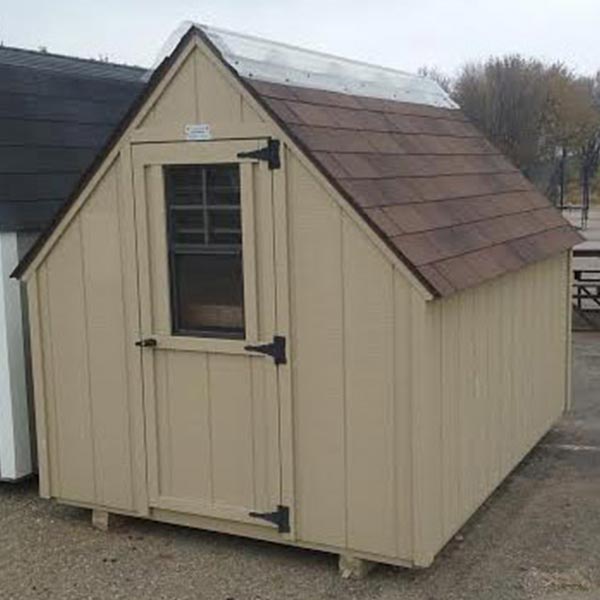When Can Chicks Go In Coop
Estimated reading time: 6 minutes
It is important to wait until your chicks are ready to move into the coop before doing so. The right time usually depends on the age, size, and health of your chicks, but you can expect them to be ready sometime between 6-8 weeks of age. Read on to learn more about when it is safe to put chicks in the coop. Chicks may be eager to explore their new home, but when is the best time to put them in their coop? Learn when it is safe for chicks to move into the coop with this helpful guide!
Make Sure the Coop is Temperatures Is Appropriate.
Before putting your chicks in their coop, you should make sure that the indoor temperature is appropriate. Chicks will need warmer temperatures during their first few weeks of life, before they are ready to move outside. This means providing a warm area inside the coop with temperatures ranging from 90-95°F (32-35°C). Be sure to provide heat lamps or other types of warmth for younger chicks.
Once your chicks have reached five to six weeks old, they can slowly adjust to being outside in a coop. It’s important to add some extra protection during the colder months by using winterizing materials such as straw or hay. You should also make sure you monitor the temperature carefully, as it can dip very low in some areas. The coop should provide enough warmth for the chicks and protect them from any drafts or frost that may come through at night. Make sure all entrances are covered with mesh to keep out animals and predators, so your chickens feel safe and secure inside their new home!

Set Up a Safe Brooding Environment.
Even before putting the chicks in their coop, it is important to ensure a safe environment is available for them. First, make sure the house draft free. Secondly, check that there are no small holes where predators such as rats or snakes can enter, and lastly, make sure to cover any sharp edges that may harm the young birds. Additionally, always include perches and roosts of different heights so chicks can access both high and low areas. Finally, provide adequate food and water supplies to ensure your chicks get off to a healthy start!
Once the chicks are around three or four weeks old and fully feathered, they will be able to hold their own body heat, which is important for in order for them to make a successful transition Into the coop. Start by introducing them gradually. Place some bedding into the coop, as well as extra food and water for them there as well. Allow ample time for chicks to adjust to their new space – usually an hour or two – before letting them out of any enclosure. Additionally, if possible, start transitioning your chicks at night time when they can’t spot potential predators which can make them more nervous in their new home. In the end, the best indication of when your chicks can move into their coop is when they look comfortable enough that you feel confident leaving them overnight without checking on them!
Have Some Perches Installed in the Coop.
Installing perches is another crucial part of preparing the coop for your chicks. Not only do these serve as a place for them to rest, but it will also leave room for them to stretch their wings and practice flight before leaving the safety of the house. When installing these poles, make sure there is about an inch of space between each one and that they are at least 10 inches off the floor. This spacing not only provides enough room for all of your birds but ensures everyone is able to balance without toppling over.
So when can chicks go in the coop? Ideally, you should wait until six weeks after they’ve hatched. This time gives them a chance to get used to their surroundings, build strength and confidence in themselves, and properly train them for the move to the coop. During this period make sure that your birds are appropriately cared for by providing fresh food and water daily, cleaning out the brooder at least once a week, and regularly checking the temperature and ventilation of their space. Once these factors have been taken into account it’s time for your chicks to move into their new home!

Inspect the Coop Thoroughly Before Putting Chicks In It.
Before putting your chicks in the coop it’s important to inspect the structure and make sure it is safe and secure. Look for signs of rot or damage from pests, check to make sure all the wiring is secure, and look for any openings or cracks that need to be sealed. If you still feel concerned about safety, install a predator guard around the outside of the coop for additional protection. Once you are sure that everything is functional and secure, it will be safe to move your chicks in!
During the first few weeks, you will want to leave your coop open during the day so that your chicks can come outside to explore. Getting some fresh air and sunshine (while being under strict supervision of course) is important for their health and well-being. At night, make sure to move them back into their coop and close it off so they will be safe from predators. And as your chicks grow, make sure to offer a larger space for them or expand the existing one with materials such as chicken wire, wood shavings or burlap. Doing this will ensure that your chicks have enough space to live in comfort and safety in their new home!

Feed and Water the Chicks Inside Their Coop Environment.
To help the chicks transition safely and comfortably into their coop, it’s important to provide feed and water as soon as they move in. Place food and water containers in a secure location that is separate from the nesting area, but close enough for them to access easily. This will help them slowly adjust to their new home without the stress of an unfamiliar environment. Provide plenty of fresh water throughout the day and change it often so it will stay clean and healthy for your chicks!
Once the chicks have settled in and are comfortable with their surroundings, you can introduce them to the outdoors gradually. Start by moving their food and water containers outside but remaining nearby so they always feel safe. As they get more used to the outdoor environment increase their time outside during the day until they develop more confidence and eventually spend the majority of their time outside in the coop. Be sure to keep a close eye on them for predators such as birds or rodents, as these could be harmful to your chicks.
